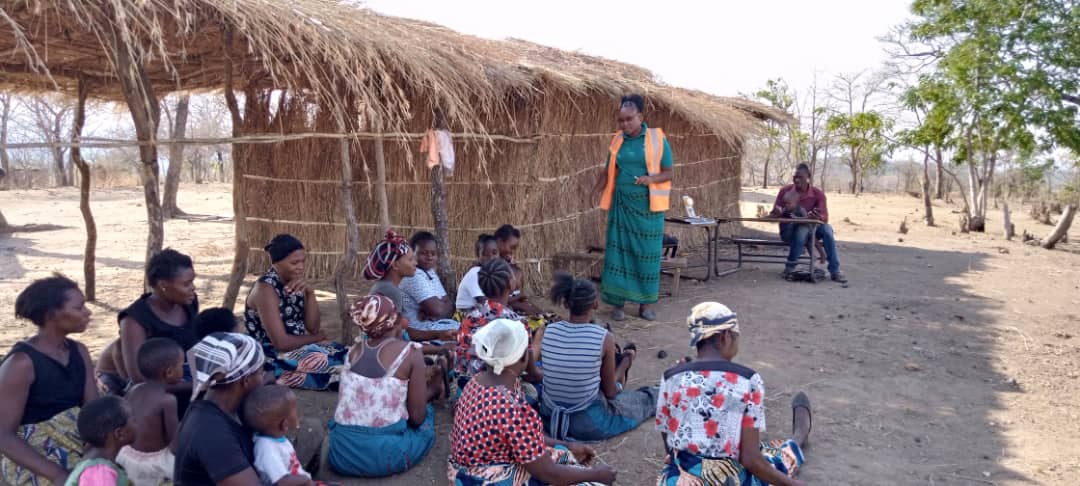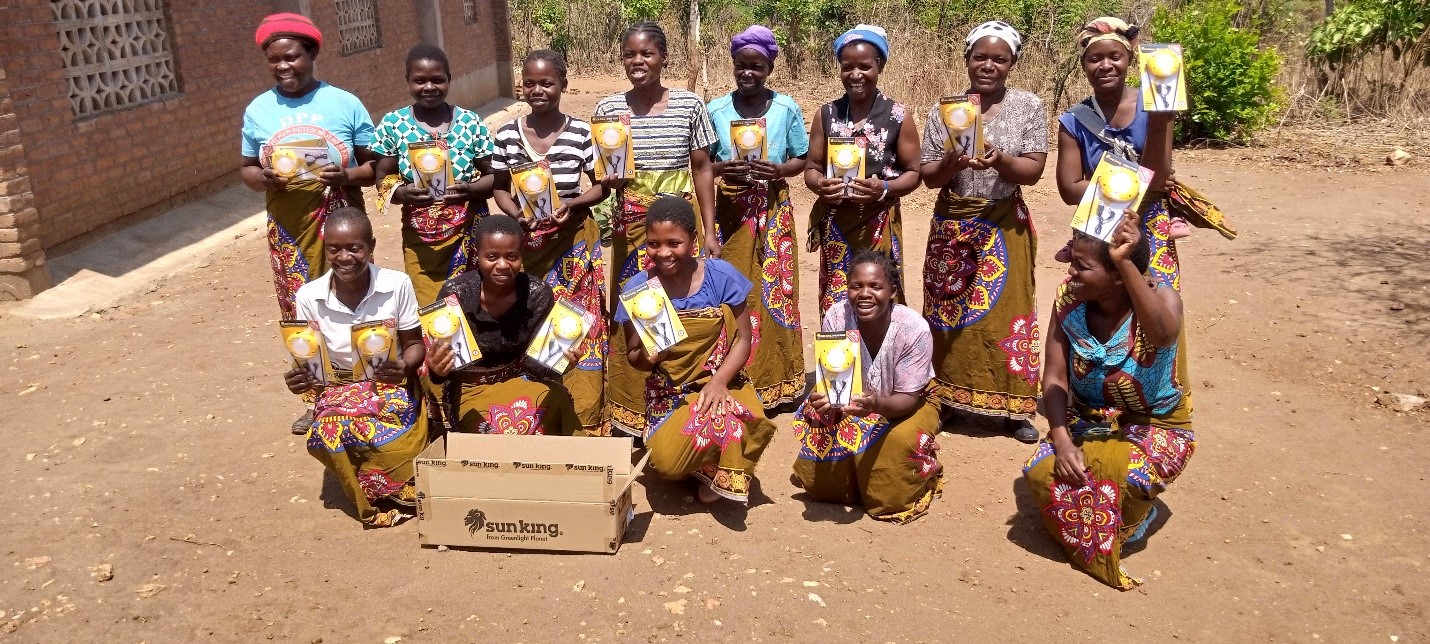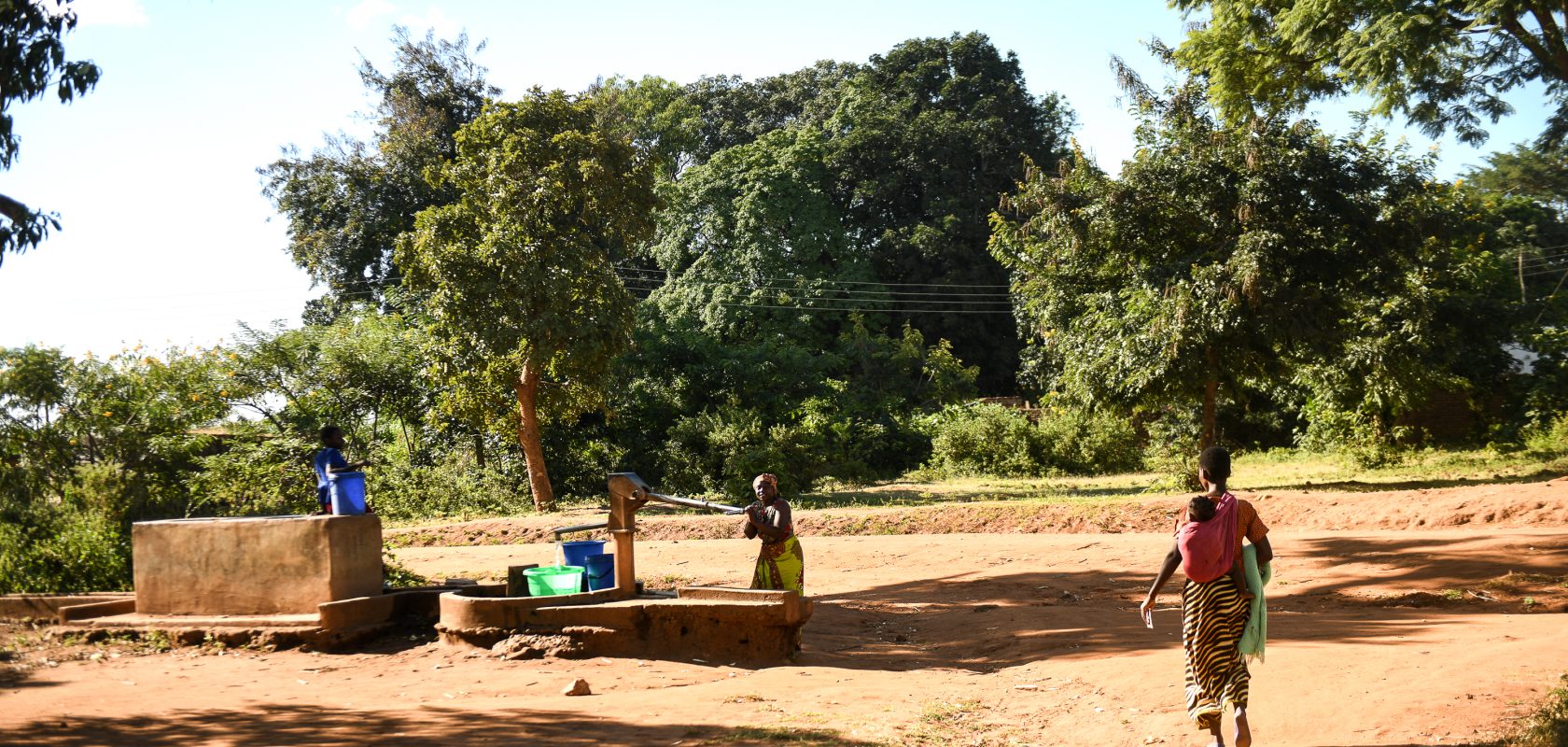“I love dancing with the Mayi Walas!” says Mphatso Nsewa, Programme Coordinator for our new Mayi Walas programme in Malawi. When Mphatso and the rest of the SunnyMoney team arrive at a village to meet with women for recruitment, they can already hear the women singing from a distance and they are often greeted with joyful dancing. Humphrey Nyangu, Mayi Wala Finance Officer explained, “Some are songs the group already know, but often they have made them up especially for the occasion, they have heard that a new business opportunity is coming to them, and they are excited!”
Following the launch of the Mayi Walas programme in 2021, there are now 41 established Mayi Wala groups of women solar entrepreneurs launching solar light businesses in their rural communities across Malawi. By April 2022, the goal is to have established 109 more groups across the country – meaning 1,500 women solar entrepreneurs will be recruited to bring safe, clean light to their communities.

Mphatso Nsewa conducting a workshop with the Mayi Wala group in Salima, Malawi.
Women in Malawi are highly economically active, yet the vast majority (94%) operate within the informal sector. The women recruited to the programme in 2021 ran small-scale businesses, mostly selling local agricultural produce, baked goods and textiles. Like most women entrepreneurs across rural Malawi, they were operating within oversaturated markets whilst lacking access to the financial services, training and business support necessary to grow a profitable business.
The Mayi Walas programme is designed to support women entrepreneurs to overcome these barriers by combining tailor-made training, business support and accessible loans through our partnership with Lendwithcare and membership to SolarAid’s Savings and Credit Co-Operative, FEBCO.
Women are key changemakers in driving energy access in rural communities, but traditional market models have failed to reach the poorest rural communities in Malawi, where only 4% of the population has access to electricity. Having women entrepreneurs at the forefront of electrification programmes is vital in bridging this gap. As trusted members of society with vast social networks, they are well-placed to communicate the benefits of solar to female customers – the primary users of energy in the home – to build trust and demand.
“I am already seeing the solidarity within the Mayi Wala groups doing solar business. I am motivated by seeing the smile of a woman realising she no longer needs to worry about income only coming from what little farm produce she has to sell,” says Mphatso.

The Talimbika Salima Mayi Walas group in Malawi.
Makulata Damison, Chairwoman of the Talimbika Salima Mayi Walas group says, “[this project is] reducing us from the total darkness we have been experiencing since we were born.”
